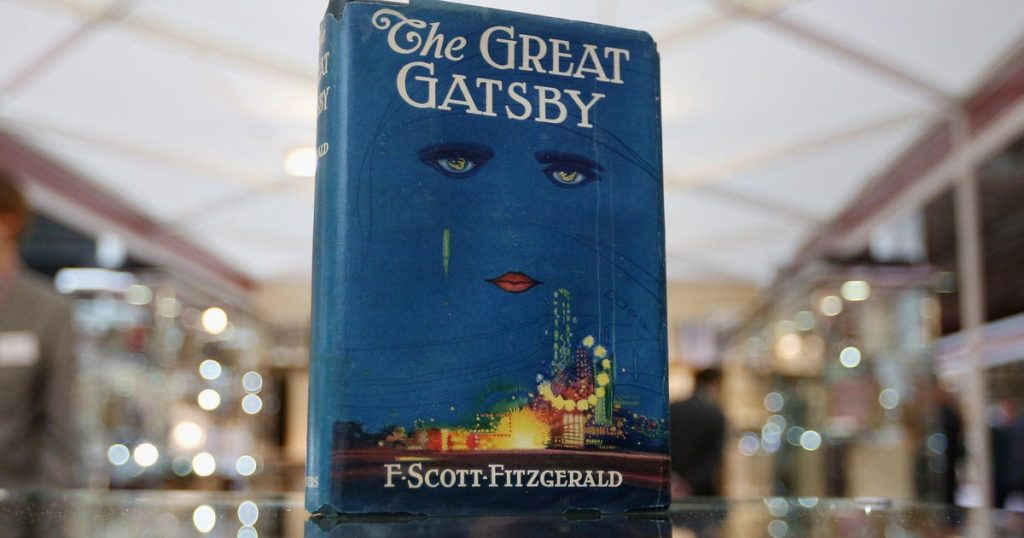The centennial anniversary of F. Scott Fitzgerald’s iconic novel “The Great Gatsby” has birthed a series of celebratory events in locations closely tied to the author and his legendary work. Initially published on April 10, 1925, the novel, which explores themes of ambition, love, and class through the lives of its characters, has transcended generations and remains a pivotal part of American literature. As efforts to honor its legacy take shape, both New York and St. Paul are set to showcase unique cultural festivities that reflect the essence of Fitzgerald’s Jazz Age.
| Article Subheadings |
|---|
| 1) The Enduring Legacy of “The Great Gatsby” |
| 2) Fitzgerald’s Life and Struggles |
| 3) A Century of Adaptations and Cultural Impact |
| 4) Upcoming Events to Celebrate the Anniversary |
| 5) The Book’s Relevance in Today’s Society |
The Enduring Legacy of “The Great Gatsby”
Since its release, “The Great Gatsby” has grown into a prestigious emblem of American literature. The novel’s exploration of the American dream and its discontents reflects societal dreams, aspirations, and the stark reality that often accompanies them. Initially met with modest acclaim, the book has undergone a transformation over the decades, earning a revered space in the canon of classic literature. It asks timeless questions about wealth, identity, and the human condition, which resonate with readers worldwide. As the novel celebrates its centennial, discussions on its themes become even more pertinent, reminding audiences of the cautionary tales embedded in its pages.
Fitzgerald’s Life and Struggles
Born in St. Paul, Minnesota, in 1896, F. Scott Fitzgerald quickly became a prominent voice of the Jazz Age following the publication of his first novel, “This Side of Paradise.” However, Fitzgerald’s life was not devoid of personal challenges. His struggle with alcoholism, compounded by familial strains and the pressures of literary fame, shadowed his career. He found himself embroiled in a turbulent relationship with socialite Zelda Sayre, which at times was a source of inspiration but frequently led to despair. His experiences influenced the characters and narrative arc of “The Great Gatsby,” illustrating a life spent in pursuit of a fleeting ideal, reflective of his own disillusionment.
A Century of Adaptations and Cultural Impact
Over the years, “The Great Gatsby” has inspired numerous adaptations, including film, theatre, and the visual arts. Its narrative has been transformed on screen in various interpretations, most notably in the lavish 2013 film directed by Baz Luhrmann, which brought to life the opulence of the Roaring Twenties while appealing to a contemporary audience. The story’s motifs have also evolved into modern meme culture, often utilizing imagery from the movie, showcasing the timelessness of Fitzgerald’s work. Beyond the arts, the novel is referenced in academic discussions, social commentaries, and even music, demonstrating its broad cultural influence.
Upcoming Events to Celebrate the Anniversary
To commemorate this significant milestone, both New York and St. Paul have organized a variety of events that celebrate the spirit and themes of “The Great Gatsby.” In New York City, the Empire State Building plans to illuminate its iconic facade in green, symbolizing the green light from the novel that represents Gatsby’s unreachable dreams. Additionally, an extravagant “Roaring Twenties” themed party is set to invigorate the city’s nightlife, complete with live jazz and historical rituals. In Fitzgerald’s hometown, the Minnesota History Center will showcase an exhibit detailing the life and times of Fitzgerald, coupled with celebratory activities that embrace the book’s festive and often tumultuous portrayals of Prohibition-era parties.
The Book’s Relevance in Today’s Society
The themes explored in “The Great Gatsby” remain incredibly relevant in today’s society. Issues surrounding wealth disparity, the pursuit of happiness, and the critique of the American dream echo in current socio-economic dialogues. As society grapples with questions of identity and fulfillment within the framework of capitalism, the foresight illustrated in Fitzgerald’s narrative challenges readers to reflect on their aspirations and privileges. The centennial celebrations also serve as reminders of the literary significance of the novel and its ability to spur critical thought about society’s values.
| No. | Key Points |
|---|---|
| 1 | “The Great Gatsby” celebrates its 100th anniversary in 2025. |
| 2 | The novel critiques the American dream and class disparity. |
| 3 | Fitzgerald’s turbulent life influenced his writing significantly. |
| 4 | Various celebratory events are planned in cities like New York and St. Paul. |
| 5 | The book maintains relevance by addressing contemporary social issues. |
Summary
In summation, the centennial celebration of “The Great Gatsby” not only honors the literary genius of F. Scott Fitzgerald but also rekindles discussions around the aspirations and disparities prevalent in American society. Through a series of events in key locations associated with Fitzgerald, the ongoing popularity and influence of the novel are highlighted, revealing its status as a critical text that continues to shape understanding and cultural discourse in contemporary times.
Frequently Asked Questions
Question: What themes are prevalent in “The Great Gatsby”?
The novel explores themes such as the American dream, class disparity, love, and the illusions of success, showcasing the complexities of 1920s society.
Question: How did Fitzgerald’s personal life affect his writing?
Fitzgerald’s struggles with alcoholism, his tumultuous marriage to Zelda Sayre, and his encounters with fame deeply influenced his storytelling and the experiences of his characters.
Question: Why is “The Great Gatsby” considered a classic?
It is regarded as a classic due to its rich narrative, complex characters, and timeless exploration of fundamental societal questions that resonate with readers across generations.


